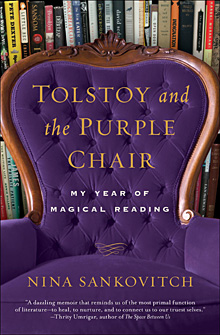
Perfect by Rachel Joyce circles around the theme of lost time. Byron Hemmings, a bright 11-year-old, discovers that the powers that be have decided to add an additional two seconds to time. Terrified, he worries that two seconds is the difference between something awful either happening or not happening. His story exemplifies how two seconds can completely alter someone's life.
I have a tendency to look back too often, at the past, at what could have been, at mistakes I have made. Nostalgia is a pain as real as heartburn. And what is even more devastating is that the past is already written and unchangeable, but the ache to change it or recreate it burns just the same.
As a parent I worry that my son isn't living some idyllic childhood, isn't swinging on enough swings, playing with enough cousins, or creating enough carefree memories like I did. I look back and see my "perfect" childhood and mourn that Aidyn might not be living his. But it's a silly worry.
I catch him in the depths of childhood wonder and imagination ("I think I might have ice powers after I read that spell book," he told me yesterday.). I watch him sled down the stairs on a "magic carpet." I see him bond with his cousins, eating ice cream sandwiches in the back seat of the car or staying up late on summer nights.
His childhood may not include everything mine did (which might actually be a good thing), but he's effortlessly creating his own. The past isn't meant to be recreated. It cannot be brought back. But in looking backward, we can see the beauty and possibility of today. Someday today will be a memory, and we have the power to influence and shape it.
Perfect reminded me how hung up we are on time, especially time past, and the frustration we feel at our inability to change it. For some reason, we are hell bent on living out what has happened to us in the past, allowing ourselves to be defined by it. It can feel imprisoning to always be that person who we were. And again, it's silly, especially when, each day, we have the new and awaiting possibility of doing Something Else.
~~~~~~~~~~~~~~~~~~~~~~~~~~~~~~~~~~~~~~~~~~~~~~~~~~~~~~~~~~~~~~~~~~~~~~~~
For the past couple of weeks, I have made an effort to return to reading. As a child, teen, and young adult, I had love affairs with books, but after years of college coursework and forced readings, I lost that love for simply picking up a book and getting lost in it.
I recently picked up Tolstoy and the Purple Chair by Nina Sankovitch, a gentle memoir about reading books to escape back into life.

Sankovitch's book is ushering me back toward books and the rewards of reading. I have been randomly plucking books from library shelves, such as 1914 by Jean Echenoz and The Guest Cat by Takashi Hiraide.
If you have a book recommendation, I would love to hear it! Have you read anything lately that I shouldn't miss?







